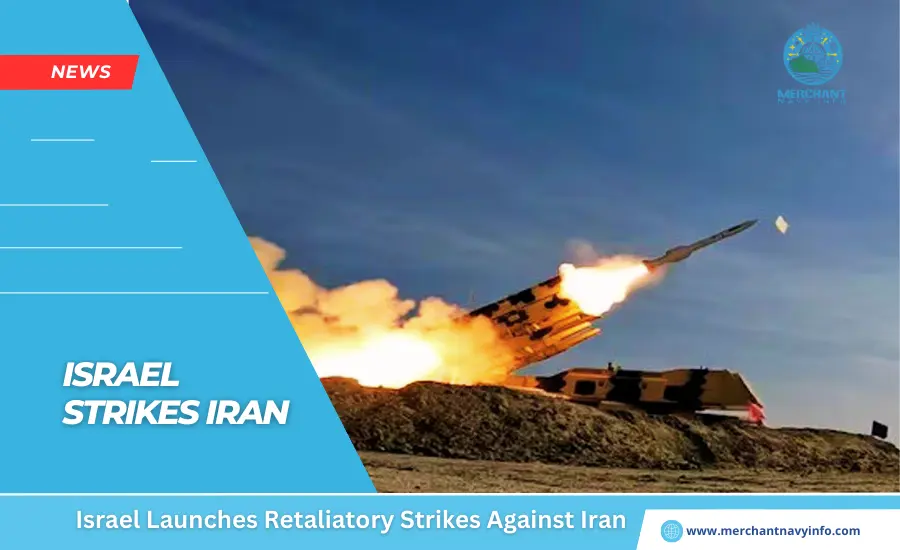
Israel launched a strike against Iran in the early hours of Friday in what appeared to be a limited. In a targeted retaliation to last weekend’s drone and missile attack by Tehran.
Both sides were muted in their response to the assault. This signaled that neither country wanted a further escalation that risked triggering a full-blown regional conflict.
Iranian commanders said there was no damage. Explosions near the central city of Isfahan were caused by air defense batteries taking out unidentified objects. Iranian officials made few public comments about the attack.
Hossein Amirabdollahian, Iran’s foreign minister, told a meeting of the Organisation of Islamic Cooperation in New York that pro-Israeli media were seeking to “portray another failure as victory.” But he said that “small airborne vehicles were destroyed without causing any human or material losses.”
Israel spent six days weighing a response to Iran’s missile barrage last weekend, the first direct strike against Israel from Iranian soil. They made no public comment about the strike. However, western diplomats confirmed the attack.
“Small Drones ” No Escalation Sought
An Iranian official told the Financial Times that they were initially informed that “small drones and quadcopters” were used in the strike. They were later told that a “limited” number of missiles had been fired at the republic, which were intercepted.
The official could not provide details of how many or where the missiles were launched or intercepted. It was said Iran was not seeking to raise tensions.
“We are trying to keep it as low as possible to show that nothing has happened,” the official said.
Benjamin Netanyahu’s government had been under intense Western pressure to show restraint in its response amid fears that hostilities triggered by Hamas’s October 7 attack. Israel’s retaliatory war in Gaza risked igniting a broader regional conflagration.
Israel notified the US of its intention to carry out strikes in Iran on Thursday evening. Giving Washington a few hours’ official notice, an Israeli official said.
Western Pressure for Restraint, Israel Informs US of Strike Plans
The warning did not include details of the attack. It was made clear that Israel intended to avoid Tehran and its vicinity. The attack was focused on a specific military program or facility related to the Iranian Revolutionary Guards, the official said.
In comments at a G7 meeting on the Italian island of Capri. Antony Blinken, the US Secretary of State, stated that the US hasn’t engaged in any offensive operations. However, he refused to provide any specific details.
“What we are focused on . . . is our work to de-escalate tension,” he added, calling on “all concerned to exercise restraint.”
Separately, Syria’s Sana state news agency reported that Israeli missiles had targeted air defense positions in its southern region, citing a military source.
A person familiar with the matter said the strike in Iran had hit a military target involved in the Iranian attack on Israel. They were not aware of any casualties. The person said that “some targets” had also been hit in southern Syria.
“Geographically it shows that Israel can get to wherever it wants in Iran,” the person said. “That was part of the message.”
Isfahan is home to both a military air base and an important site in Iran’s nuclear program. Tehran insists it is purely peaceful. The West fears it could put the Islamic Republic on the threshold of weapons capacity.
The Tasnim news agency, near the Revolutionary Guards, reported that the air base and nuclear facility near the city were safe. They dismissed reports of any attack from outside the country.
State media quoted Iran’s top army commander, Abdolrahim Mousavi, saying that the air defense batteries in Isfahan shot at a few airborne objects but caused no damage.
He said experts were conducting further investigations, and their findings would be announced.
Disagreement & Minimal Market Impact
The International Atomic Energy Agency, the UN’s nuclear protection, said it could “confirm that there is no damage to Iran’s nuclear sites” but called for “extreme restraint.”
A senior EU official described Friday’s strike as “a very limited attack” with “no human consequences or huge damage.” They added: “Of all the options, it is clear this is a very minor action on the side of Israel.”
Oil prices jumped in the immediate aftermath of the attacks before giving up most of their gains as traders bet against further escalation. Brent crude was up 0.3 percent on the day at $87.39 a barrel, having climbed above $90 earlier.
Tension has been heightened across the Middle East since Iran fired more than 300 armed drones and missiles at Israel last weekend. Iran said the strike was a response to an attack on its embassy in Damascus that killed senior military commanders, which Tehran blamed on Israel.
In contact with allies before the strike, Israel had indicated that it reserved the right to respond to Iran’s attack. It was not seeking escalation. According to a Western diplomat, despite pressure from right-wing members of Netanyahu’s government.
Iran crisis risks easing pressure on Israel over Gaza, diplomats warn
In a critical post on X, Itamar Ben-Gvir, Israel’s ultranationalist minister for national security, had called for a “crushing attack” against Iran. They wrote: “Weak!”
Yair Lapid, leader of the country’s biggest opposition party, condemned his comments.
“Never before has a minister in the security cabinet done such heavy damage to the country’s security, its image, and its international status,” Lapid wrote. “In an unforgivable one-word tweet, Ben-Gvir managed to mock and shame Israel from Tehran to Washington.”









